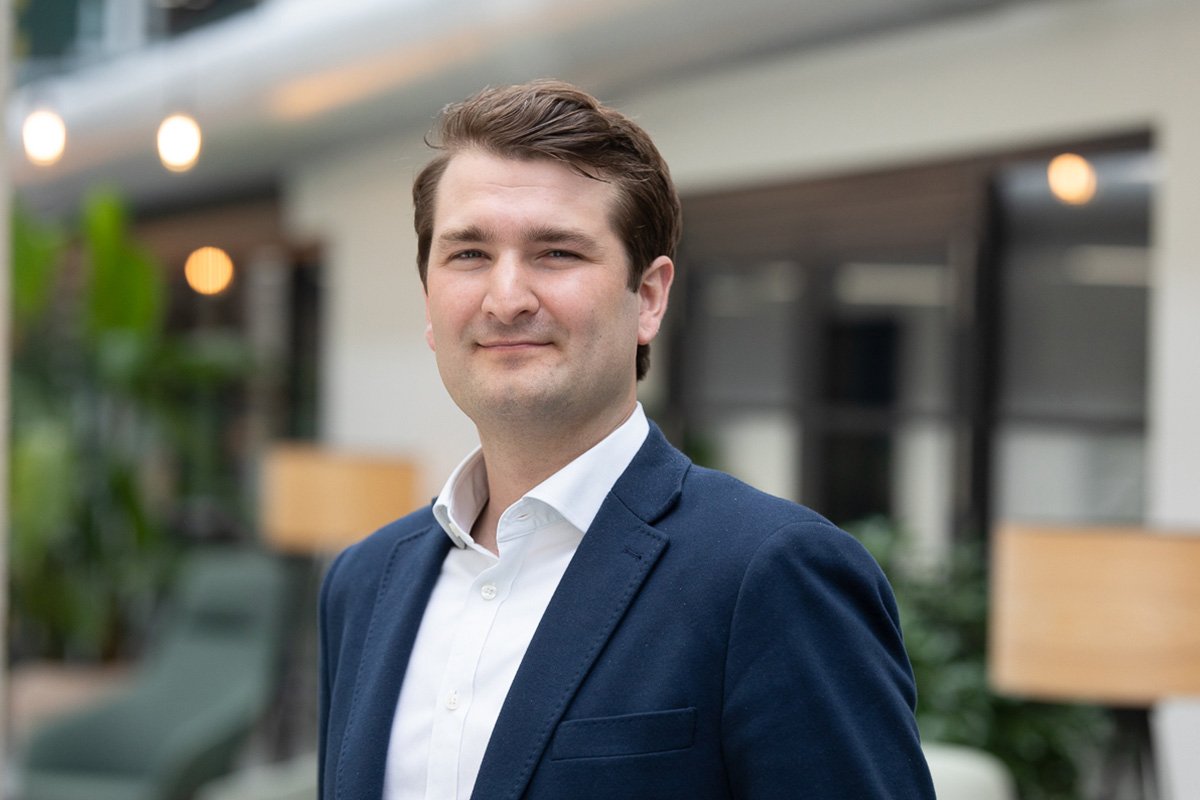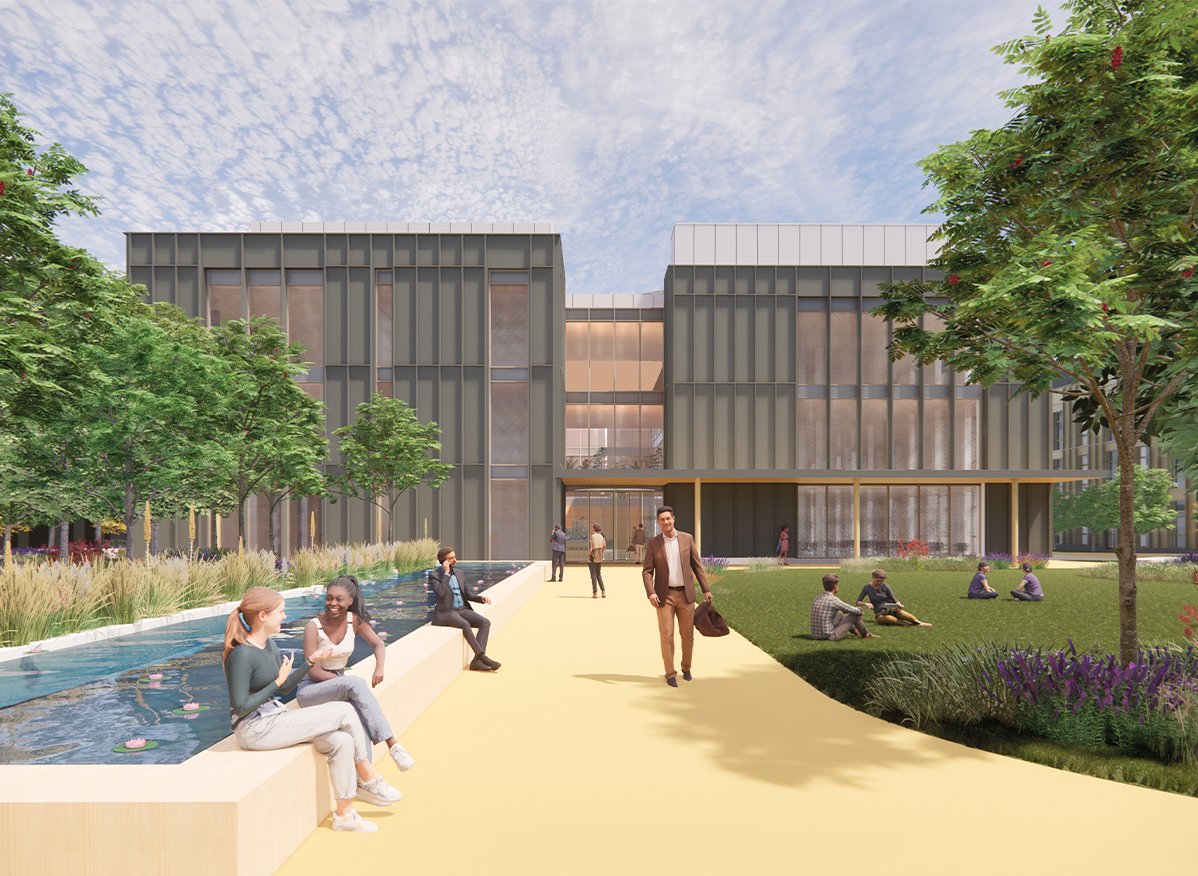Today’s actions, tomorrow’s impact:
Unity Campus’ sustainability roadmap
Howard Group, a family-owned business with more than half a century of successful commercial property development experience, is stewarding the evolution of Unity Campus - a flourishing hub of life science and innovation businesses working side-by-side in purpose-built laboratory and office spaces.
It’s part of an ambitious vision to bring together pioneering individuals and ventures in the Cambridgeshire countryside, as part of one of the most exciting and swiftly expanding life science clusters in the country.
While creating physical space for trailblazing companies to solve, thrive, and grow, Howard Group is also creating a sustainable ecosystem that’s based on the sharing of ideas, green initiatives and responsible stewardship, facilitated by an on-site team who support, enrich, and simplify the daily life of every company based there.

“Our work at Unity Campus is not just about building structures; it’s about supporting UK science and creating a lasting positive impact on the community and the environment. Sustainability considerations are central to all current operational, and future design, decisions.”
Fred Murphy, Asset Manager, Howard Group
Sustainable design in action
ESG principles are integrated across every level at Unity Campus and the existing buildings are designed with sustainability at their core.
The Works Building and the recently completed Phase 2 buildings employed carbon-conscious design practices, with robust material selection to drive energy and building performance.
For example, The Works Building retained the concrete slab and frame of the pre-existing industrial building which saved over 1,900 tonnes of carbon compared to demolishing and building anew.
Again, during construction of three new lab buildings as part of Phase 2, decisions around material selection have translated into a saving of over 253 tonnes of carbon to date – the equivalent of heating 93 family homes for a year.
Fred said: “Our goal is to create buildings that are not only high-performing but also have a minimal environmental footprint. By selecting sustainable materials and integrating advanced energy management systems, we can ensure that Unity Campus leads the way in sustainable development.”
Additionally, there’s a commitment to use renewable resources for all energy: “The energy we use at Unity Campus is 100% renewable. This commitment helps us reduce our carbon footprint and move closer to our net zero carbon aspiration for 2035,”adds Fred.
Charting an even greener path
As attention now turns to the next evolution of Unity Campus – Phase 3 – Howard Group has big aspirations to deliver best-in-class buildings from an operation and functionality perspective.
An outline planning application has been submitted for an additional 60,000 sq ft of laboratory and office space. The development will also include a central courtyard and pavilion providing a café, meeting and event space, to further bring the community together, fostering close collaboration and the sharing of ideas in an engaging open innovation environment.
These buildings will be exemplars of sustainable development, aligning with Howard Group’s target of having a property portfolio that is net zero carbon by 2035.
Fred said: “While building design must be led by performance, specification and flexibility, Phase 3 aims to deliver highly sustainable and efficient buildings that set new benchmarks for the Cambridge market.”
Features like rainwater harvesting, photovoltaic panels, and electric vehicle charging points further enhance the Campus’ sustainability profile, along with a green travel plan that includes car sharing, ample cycle parking, and convenient bus routes to and from the train station.

Howard Group’s aspirations for Phase 3 include:
- Net zero embodied carbon and net zero operational carbon: Ensuring that both the construction process and day-to-day operations are environmentally sustainable.
- Achieving BREEAM ‘Outstanding’ and EPC ‘A’ ratings across all new buildings: Maintaining the highest standards in sustainability.
- All-electric design: Eliminating the use of fossil fuels, with ideally limited use of refrigerants in mechanical systems.
- Best in class amenities, connectivity and wellness facilities.
Building for a long-term future
Nicholas Bewes, CEO, Howard Group, concludes: “As a Cambridge-based family business, we take immense pride in investing in and enhancing our local community through property ventures such as Unity Campus.
“The long-term nature of these new buildings emphasises our commitment to the Cambridge ecosystem and the life science sector, our contribution to ‘UK plc’ growth, and our dedication to net zero targets.
“While Unity Campus is owned and managed by Howard Group, it has its own identity, reflecting the strong values ofinnovation, collaboration, and community that we’ve instilled from the beginning and that it continues to uphold.
“As well as setting new standards in sustainable development and operational excellence, the Campus is so much more than a science real estate project. We also aim to have the biggest social impact we can by building relationships with schools, organisations, and charities, and enhancing biodiversity, so that Unity Campus is not just a place to work – it’s a place that gives back in so many different ways.”
Visit www.unitycampus.co.uk to see the remaining Phase 2 availability and to read more about the exciting Phase 3 plans.

